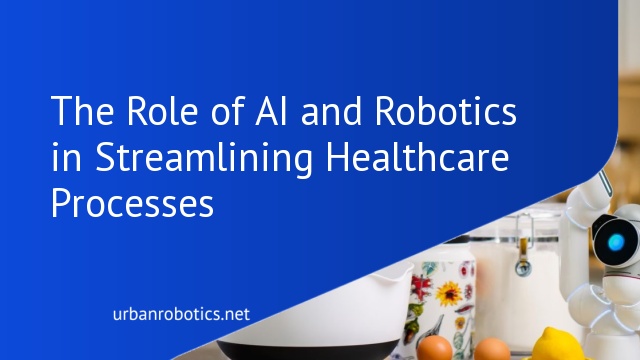Welcome to our article on the remarkable advancements in healthcare made possible by the integration of artificial intelligence (AI) and robotics. In recent years, AI has emerged as a game-changer, revolutionizing various industries, including healthcare. With its potential to improve all aspects of healthcare, from diagnostics to treatment, AI holds tremendous promise for streamlining healthcare processes and enhancing patient outcomes.
By leveraging AI tools, healthcare personnel can receive invaluable assistance with administrative tasks, clinical documentation, patient outreach, image analysis, medical device automation, and patient monitoring. These AI-driven solutions not only increase efficiency but also lead to cost savings and improved healthcare models. With the AI-associated healthcare market projected to reach USD 6.6 billion by 2021, it’s clear that the integration of AI and robotics is a significant force driving the future of healthcare.
In the sections that follow, we will delve deeper into the applications of AI in healthcare, the role of robotics, how these technologies improve diagnosis and treatment, their impact on drug research and discovery, and their transformative potential in training and education. Finally, we will explore the exciting future prospects of AI and robotics in revolutionizing healthcare processes, leading to enhanced patient care and improved outcomes.
If you’re interested in learning more about how AI and robotics are changing the landscape of healthcare, continue reading our comprehensive article. We invite you to join us on this journey of exploration and discover the fascinating ways in which AI and robotics are streamlining healthcare processes to benefit patients and healthcare professionals alike.
AI Applications in Healthcare
Artificial intelligence (AI) is revolutionizing the healthcare industry by offering a wide range of applications. From administrative workflows to image analysis, AI is transforming healthcare processes and improving patient care. One key application of AI is in robotic surgery, where AI-powered robots assist human surgeons in performing complex procedures with greater precision and accuracy.
Virtual assistants powered by AI are also being utilized in healthcare settings, providing support to healthcare professionals and patients. These virtual assistants can handle tasks such as answering patient queries, scheduling appointments, and providing basic medical information. They can enhance patient engagement and streamline communication between healthcare providers and patients.
Clinical decision support systems are another important AI application in healthcare. These systems use AI algorithms to analyze patient data and provide evidence-based recommendations to healthcare professionals. By leveraging AI, healthcare providers can make more informed decisions about diagnosis and treatment, resulting in improved patient outcomes.
AI is also facilitating the development of precision medicine, which tailors healthcare interventions based on an individual’s unique characteristics. AI algorithms are being used to analyze genomic data and identify personalized treatment options. This personalized approach to healthcare ensures that patients receive targeted therapies that are most effective for their specific conditions.
| AI Applications in Healthcare | Description |
|---|---|
| Robotic Surgery | AI-powered robots assist human surgeons in complex procedures |
| Virtual Assistants | AI-powered virtual assistants provide support to healthcare professionals and patients |
| Clinical Decision Support Systems | AI algorithms analyze patient data and provide evidence-based recommendations to healthcare professionals |
| Precision Medicine | AI analyzes genomic data to identify personalized treatment options |
Robotics in Healthcare
In the field of healthcare, robotics has made significant strides in improving patient care and streamlining various processes. From surgical robots assisting human surgeons to robots used in rehabilitation, labs, and end-of-life care, the applications of robotics in healthcare are diverse and promising. These advancements in robotics have the potential to revolutionize the way healthcare is delivered, enhancing independence for patients and reducing hospitalizations and care home needs.
One of the key areas where robotics is making a difference is in end-of-life care. AI-powered robots are being developed to engage in social interactions with aging individuals, helping to keep their minds sharp and improving their overall well-being. By providing companionship and assistance, these robots contribute to the goal of enabling people to age in place and maintain their independence, which ultimately leads to improved quality of life.
Additionally, robotics is playing a vital role in drug research and discovery. By automating laboratory processes and using AI algorithms, robotics is streamlining drug development processes, reducing time to market, and lowering costs. The integration of robotics in drug research not only expedites the identification and testing of potential drug candidates but also enhances decision-making in clinical trials, ultimately benefiting patients by bringing new treatments to market more quickly.
| Application | Key Benefits |
|---|---|
| Surgical robots | Assist human surgeons in performing complex procedures with greater precision and accuracy. |
| Rehabilitation robots | Aid in physical therapy and rehabilitation to help patients regain mobility and independence. |
| Robots in end-of-life care | Provide companionship and support to aging individuals, reducing social isolation and improving well-being. |
| Robots in drug research | Automate laboratory processes, accelerate drug discovery, and lower costs. |
As robotics technology continues to advance, we can anticipate even more significant contributions to healthcare. From improving diagnosis and treatment to enhancing training and education, robotics has the potential to reshape the healthcare landscape, leading to better patient outcomes, increased efficiency, and reduced costs.
Improving Diagnosis and Treatment
Artificial intelligence (AI) and robotics are revolutionizing the field of healthcare by significantly improving the accuracy and effectiveness of diagnosis and treatment. With the ability to analyze vast amounts of medical data, AI tools like IBM’s Watson for Health and Google’s DeepMind Health are transforming the way healthcare professionals approach patient care.
One of the key areas where AI is making a significant impact is in medical imaging analysis. AI algorithms can review and interpret medical images, such as mammograms, with higher accuracy and at a faster speed, reducing the need for unnecessary biopsies and improving the early detection of potential diseases, including cancer.
AI is also playing a crucial role in monitoring and managing chronic conditions. Through continuous monitoring and analysis of individual health data, AI algorithms can identify early signs of heart disease or other potentially life-threatening episodes. This enables healthcare providers to intervene earlier, leading to better patient outcomes and improved quality of life.
Additionally, AI-driven precision medicine is revolutionizing treatment plans by considering individual biology and characteristics. With the ability to analyze vast amounts of patient data, AI algorithms can identify personalized treatment options based on genetics, lifestyle, and other factors. This tailored approach to healthcare is leading to more effective treatment plans and improved patient outcomes.
| Benefits of AI in Diagnosis and Treatment | |
|---|---|
| 1. Improved accuracy in medical imaging analysis | AI algorithms can review and interpret medical images, such as mammograms, with higher accuracy, reducing unnecessary biopsies. |
| 2. Early detection of diseases | AI algorithms can detect early signs of diseases, such as heart disease, enabling earlier intervention and better patient outcomes. |
| 3. Personalized treatment plans | AI-driven precision medicine considers individual biology and characteristics to identify personalized treatment options, leading to more effective treatment plans and improved patient outcomes. |
Drug Research and Discovery
AI is revolutionizing the field of drug research and discovery, drastically improving the efficiency and speed of the development process. By leveraging AI technology, researchers can analyze vast amounts of medical data to identify potential drug candidates and accelerate the journey from lab to patient. This innovative approach reduces the time and costs traditionally associated with drug discovery, opening new possibilities for finding effective treatments.
With AI, the identification of promising drugs becomes more accurate and efficient. Complex algorithms can sift through extensive datasets, highlighting compounds with the highest potential for success. This data-driven approach enables researchers to make more informed decisions in clinical trials, reducing the likelihood of investing resources in compounds that are unlikely to be effective.
Enhancing Precision and Personalized Medicine
One of the key advantages of AI in drug research and discovery is its ability to facilitate precision and personalized medicine. AI algorithms take into account individual biology and genetic factors, allowing for tailored treatment plans. By analyzing a patient’s unique characteristics and medical history, AI can provide insights into the most suitable drug options, dosages, and treatment regimens. This personalized approach maximizes the effectiveness of treatment while minimizing potential side effects, ultimately improving patient outcomes.
| Advantages of AI in Drug Research and Discovery | Benefits |
|---|---|
| Accelerated drug discovery process | – Reduction in time and costs – Identification of promising drug candidates |
| Enhanced decision-making in clinical trials | – Improved success rates – Reduced investment in ineffective compounds |
| Precision and personalized medicine | – Tailored treatment plans based on individual characteristics – Maximization of treatment effectiveness |
By combining AI technology with traditional drug research methods, we can expect significant advancements in the development of new drugs. The potential for AI to revolutionize the healthcare industry is immense, as it continues to streamline processes, improve decision-making, and create more targeted treatments for patients.
AI in Training and Education
AI technology is revolutionizing the field of healthcare training and education. Through the use of naturalistic simulations powered by AI, trainees can now practice in realistic scenarios, receiving immediate feedback and guidance. These simulations allow healthcare professionals to gain practical experience and enhance their skills in a safe and controlled environment.
With AI-enabled programs, trainees can be challenged with complex scenarios that are tailored to their individual learning needs. The AI algorithms can adjust the difficulty of the scenarios based on the trainees’ performance, ensuring optimal learning outcomes. This personalized approach to training allows healthcare professionals to develop their expertise efficiently and effectively.
The integration of AI technology also enables remote training and education. Healthcare professionals can access AI-powered training modules using their smartphones, allowing them to learn on-the-go and participate in quick catch-up sessions. This flexibility in training delivery enhances accessibility and ensures that healthcare professionals can continuously update their knowledge and skills.
Benefits of AI in Training and Education:
- Realistic simulations for practical experience
- Personalized challenges for individual learning needs
- Flexibility in training delivery
- Continuous learning and skill development
Table: AI in Training and Education
| Benefits | Details |
|---|---|
| Realistic Simulations | Trainees can practice in realistic scenarios, receiving immediate feedback and guidance. |
| Personalized Challenges | AI algorithms can adjust the difficulty of scenarios based on the trainees’ performance, ensuring optimal learning outcomes. |
| Flexibility in Delivery | Healthcare professionals can access AI-powered training modules using smartphones, allowing for on-the-go learning and quick catch-up sessions. |
| Continuous Learning | AI technology enables healthcare professionals to continuously update their knowledge and skills. |
Overall, AI in training and education is revolutionizing the way healthcare professionals learn and develop their skills. With realistic simulations, personalized challenges, and flexible delivery methods, AI technology is enhancing the quality of healthcare education and ensuring that healthcare professionals are equipped with the necessary expertise to provide the best possible care to patients.
The Future of AI and Robotics in Healthcare
The future of AI and robotics in healthcare is highly promising. With ongoing advancements in technology, particularly in deep learning, we can expect even greater capabilities and transformations in healthcare processes. The integration of AI and robotics will continue to streamline operations and delivery, ultimately leading to improved patient outcomes and significant cost savings.
AI has the potential to revolutionize healthcare across various areas. From precision medicine to drug discovery and training, the applications of AI are vast. As AI algorithms become more sophisticated and data analysis becomes more comprehensive, diagnostic accuracy will greatly improve. This will enable healthcare professionals to make faster and more accurate diagnoses, leading to more effective treatment plans and ultimately better patient care.
The use of robotics in healthcare is also set to expand. With the ability to assist in surgeries, perform routine tasks, and engage in social interactions, robots have the potential to revolutionize end-of-life care and enable individuals to maintain their independence for longer. Additionally, robotics is being utilized in drug research and discovery, streamlining processes and reducing time to market.
In the coming years, we can expect significant advancements in healthcare driven by AI and robotics. As technology continues to evolve, healthcare systems will benefit from improved diagnostic accuracy, more effective treatment options, and enhanced patient care. By embracing the future of AI and robotics, we are paving the way for a healthcare system that is more efficient, cost-effective, and ultimately, capable of providing better outcomes for all.





